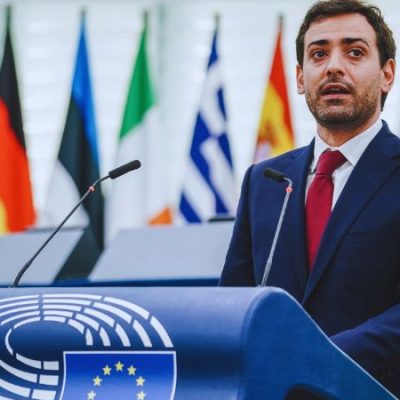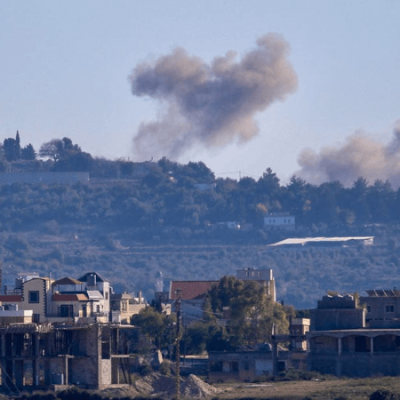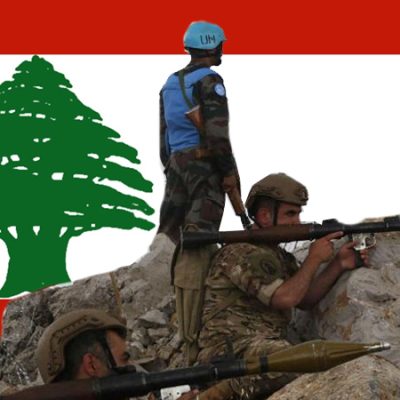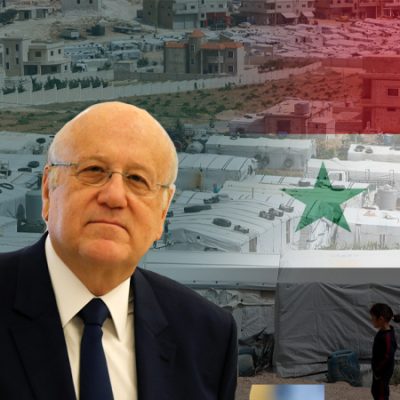Israeli Supreme Court proposes “protected rent” to Arab families in East Jerusalem
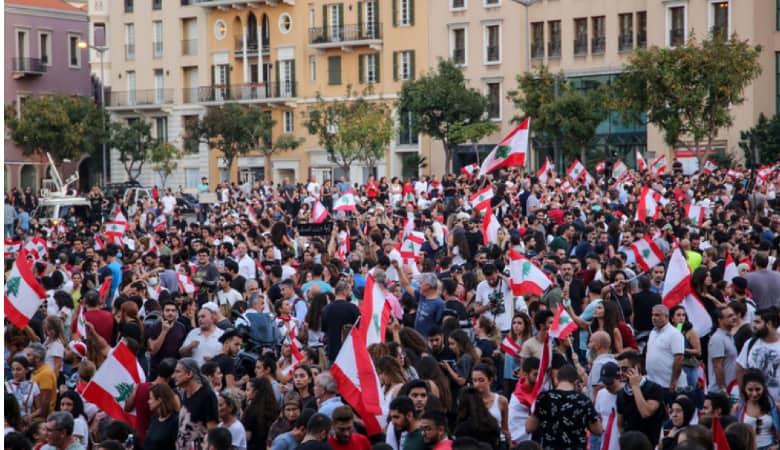
In conjunction with the return of the Lebanese demonstrators to the streets to protest the deteriorating economic conditions,members of the Lebanese Parliament were received by spraying antiseptics at their arriving point to attend a parliamentary session, on Tuesday after they changed their place of residence from the seat of Parliament to a theater, to allow the social separation between those present to reduce the spread of COVID-19
The vicinity of the UNESCO Palace in Beirut witnessed the session where the deputies transferred a gathering of protesters who set out from Beirut and a number of Lebanese regions to protest against the economic and living conditions in Lebanon.
The protesters confirmed the continuation of their revolution that started on October 17th, “until the demands are met,” saying that “dying because of corona is like dying from hunger.”They announced that they would “not back down from their actions and that Corona would not prevent them from achieving their demands.”
Members of Parliament’s temperatures were measured upon arrival at the UNESCO Palace and a man in a protective suit sprayed their feet with antiseptic. Many were wearing masks while being interviewed by the media.Parliament Members discussed bills, including a law regulating the cultivation of cannabis plant for medical use, a controversial amnesty law and a proposal to dismiss immunity for ministers’ prosecution.
The Corona virus crisis prevented the Lebanese protesters from continuing their demonstrations against the political class and protesting the difficult living conditions they are in despite the general mobilization that has lasted for more than a month in the country that suffers the worst crisis in its history.
Immediately after the start of the session, the parliament approved a previous loan agreement with the World Bank worth $ 120 million, to support the health system amid the emerging crisis of the Coronavirus. It also passed a law to combat corruption in the public sector and the creation of a national anti-corruption system.
On the agenda was the legislation for the cultivation of cannabis for medical purposes, an item that receives the consensus of most of the blocs and its approval would provide financial revenues for the treasury. Cannabis, known for its “good quality”, during the Civil War (1975-1990) was a thriving industry that was generating millions of dollars before it was banned.
The general amnesty is a people’s requirement of what are known as the “Islamic detainees”, whose number is approximately 1200. Most of them hail from the mainly Sunni city of Tripoli, headed by former Prime Minister Saad al-Hariri. They are accused of various crimes including fighting and assaulting the army, participating in fighting rounds inside the city and planning bombings.
Among the provisions is a proposal for a law to lift the immunity of deputies and ministers, which could pave the way for prosecution for corruption charges.Despite measures to limit the spread of the new Corona virus, dozens of demonstrators participated in car rallies to protest the living conditions and the absence of addressing the urgent economic challenges from the session. In the center of Beirut, before the start of the march, the protester Lina Al-Adawi, 54, told France Presse, “I decided to take to the street because the state has not done anything yet and we have not seen any reforms.”
She added that “the Corona virus exacerbated the economic and living condstoric-visit-to-bahrain-meets-crown-prince-salman-khalifa/”>Israel’s FM Yair Lapid makes historic visit to Bahrain, meets crown prince Salman Khalifa
However, the payment of the rent to Nahalat Shimon implies recognition of their property, and it isn’t easy to think that the Palestinians will accept this solution, rejected in all previous stages of the ongoing proceedings. The lawyers of the four families declined to comment, as did Aref Hammad, a spokesman for the neighborhood, who said he had not yet seen the proposal’s details. “We reject the occupation court’s proposal and any temporary solution, reaffirming our property right,” Suhad Abdel Latif, an activist from Sheikh Jarrah, told the Arabi21 website.
The affair has been dragging on in the courts for over thirty years. In 2009, two Palestinian families had already been evicted in another proceeding similar to the one underway. The land in question had been purchased in 1872 by some Jewish families in the then Ottoman Jerusalem. After the war of 1948, the Jews fled with the Jordanian occupation of the eastern part of the city. In 1956, the Jordanians built 28 homes on that land to accommodate Palestinian families in exchange for renouncing the refugee status issued by UNRWA but failing to register the properties in their name, creating the vacuum that has led to today’s situation.
In 1967, with the Six-Day War, Israel conquered East Jerusalem from the hands of Jordan, annexing it to the rest of the city, which it considers “a single and indivisible capital.” The 1950 “absentee property law” allows Israel to confiscate the assets of “those who left their property to go to an enemy country.” Israeli authorities return those homes to the heirs of the Jewish owners, who later sold the rights to associations linked to the Israeli right – including Nahalat Shimon – who want to recreate on the spot the Jewish settlement born at the end of the 19th century around what the Jewish tradition identifies as the tomb of Shimon the Right.

